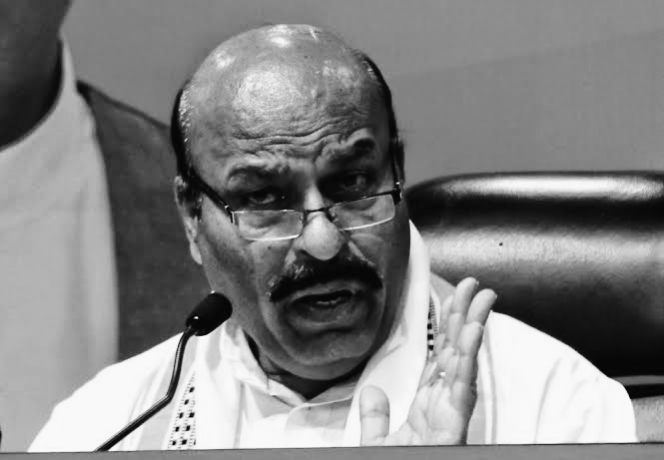Dehradun, Uttarakhand – The Union Ministry of Social Justice and Empowerment is set to host a significant two-day national conference, the Chintan Shivir 2025, on April 7 and 8 in Dehradun, Uttarakhand. This event, described as a National Review Conference, aims to bring together a diverse group of stakeholders—domain experts, policymakers, and officials from across India—to evaluate and strengthen the country’s social justice and welfare initiatives. With a focus on fostering effective convergence, enhancing Centre-State coordination, and ensuring inclusive delivery of government services at the grassroots level, the conference underscores the ministry’s commitment to building a more equitable society.
The Chintan Shivir will be chaired by Union Minister for Social Justice and Empowerment Virendra Kumar, who will be joined by Ministers of State Ramdas Athawale and B. L. Verma. Adding prominence to the event, Uttarakhand Chief Minister Pushkar Singh Dhami will also attend, lending regional weight to the proceedings. The conference is expected to draw 21 ministers from various states and Union Territories, alongside senior officials from the Ministry of Social Justice and Empowerment, state-level Social Welfare Departments, and leaders of Development and Finance Corporations. This broad participation reflects the event’s ambition to bridge national and regional perspectives on social justice.
At its core, the Chintan Shivir seeks to advance the ministry’s mission of dismantling barriers to social, educational, and economic empowerment for marginalized communities. Discussions will center on actionable strategies to improve access to quality education, promote skill development, and create sustainable livelihood opportunities for groups that have historically faced exclusion. The agenda places special emphasis on ensuring dignity, rehabilitation, and inclusion for specific populations, including persons with disabilities, senior citizens, transgender individuals, sanitation workers, and those grappling with homelessness or begging. These communities, often overlooked in mainstream policy discourse, are poised to be at the forefront of the conference’s deliberations.
The event’s framework is deeply tied to the ministry’s vision of human dignity, rights-based support, and equal opportunity. Participants will explore how these principles can be translated into practical outcomes through enhanced collaboration between the central government and states. A key focus will be on identifying and scaling up state-level innovations and successful community-based models that have demonstrated impact. By sharing best practices, the conference aims to create a roadmap for more effective policy implementation, ensuring that welfare programs reach their intended beneficiaries without bureaucratic delays or inefficiencies.
Financial inclusion and entrepreneurship will also feature prominently in the discussions, with presentations from Development and Finance Corporations highlighting efforts to empower historically disadvantaged groups. These organizations, tasked with providing economic support to marginalized communities, will showcase their work in fostering self-reliance and breaking cycles of poverty. The conference will delve into how access to credit, training, and market opportunities can transform lives, particularly for those who have been excluded from traditional economic systems due to caste, gender, or disability.
Transparency and accountability will be recurring themes throughout the Chintan Shivir. Participants will examine mechanisms such as social audits and digital systems to enhance citizen participation and ensure that government schemes are implemented with integrity. By leveraging technology, the ministry hopes to streamline service delivery, reduce leakages, and empower citizens to hold authorities accountable. This push for digitization aligns with broader national efforts to modernize governance and make it more responsive to public needs.
The conference’s structure is designed to encourage robust dialogue and collaboration. Over the two days, attendees will engage in presentations, panel discussions, and working sessions, each aimed at dissecting the challenges and opportunities within India’s social justice landscape. Senior officials from the ministry and state departments will provide data-driven insights into the performance of existing programs, while ministers from states and Union Territories will offer perspectives on regional priorities and constraints. This exchange is expected to yield a clearer understanding of how national policies can be tailored to diverse local contexts.
The Chintan Shivir will conclude with reflections from the attending ministers, who will articulate their takeaways and commitments moving forward. This closing session is intended to reinforce the government’s pledge to create a society where every individual—regardless of caste, age, gender, or ability—has the opportunity to thrive. While specific outcomes remain to be seen, the event is positioned as a stepping stone toward more cohesive and impactful social welfare policies, with an emphasis on inclusivity as a non-negotiable principle.
For Virendra Kumar, the conference represents a critical moment to align national objectives with grassroots realities. His leadership will be pivotal in steering the discussions toward concrete solutions, particularly as India grapples with persistent inequalities despite decades of welfare initiatives. The presence of Uttarakhand’s Chief Minister Pushkar Singh Dhami adds a layer of regional significance, signaling the state’s role as a partner in this national endeavor. Uttarakhand, with its unique demographic and geographic challenges, offers a microcosm of the issues the conference aims to address—rural poverty, limited access to services, and the need for targeted interventions.
As the Chintan Shivir unfolds, it will serve as both a stocktaking exercise and a forward-looking platform. The ministry’s focus on convergence—bringing together disparate efforts into a unified strategy—reflects an acknowledgment that siloed approaches have often limited the impact of social programs. By fostering dialogue between the Centre and states, the event aims to break down these silos and create a more integrated framework for empowerment. Whether this translates into tangible policy shifts or remains a high-level brainstorming session will depend on the follow-through in the months ahead.
For now, the Chintan Shivir stands as a testament to the government’s stated priority of social justice, offering a space to reflect on progress, confront shortcomings, and chart a path toward a more inclusive India. As stakeholders gather in Dehradun, the stakes are clear: the success of this dialogue could shape the lives of millions who remain on the margins, waiting for the promise of equality to become a lived reality.


